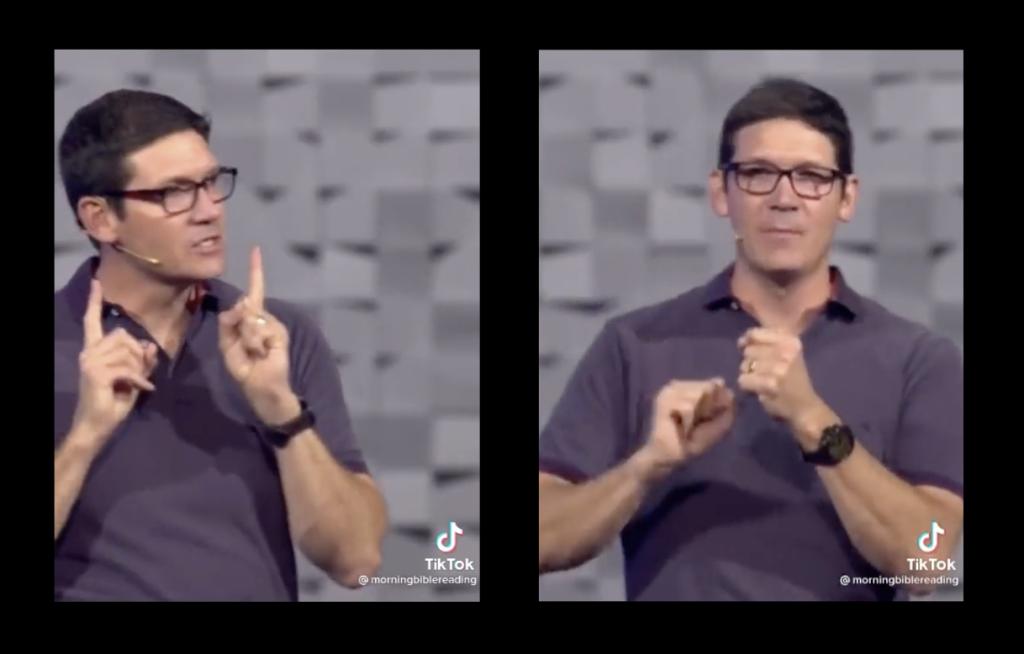“The movement that Jesus begins is constituted by people who believe that they have all the time in the world, made possible by God’s patience, to challenge the world’s impatient violence by cross and resurrection.” — Stanley Hauerwas
I have a theory that at least half of what passes for leadership in the context of churches and ministries today could most accurately be described as: the frenetic activity of a leader who does not have the patience to wait on God to act.
I confess that patience has never been my strong suit. This has often been encouraged by leadership gurus who rebrand impatience as a bias for action, or the default mode of an activator, and recommending it as a virtue. But impatience is the default mode of a people who have become bored with the hard work of faithfulness because it doesn’t produce the category of results they desire.
Patient leaders are rare. These are the leaders who have learned to still their own hearts, and quiet their own fears, helping those around them to do the same. Patient leaders refuse to become embroiled in the day’s drama, or stirred up by the pressing concerns of the moment. They know how to be still and wait on God because they have had to practice that very posture for years. It takes practice to be patient, because patience is a practice, not a possession. One does not possess patience like a good voice or blonde hair. One practices patience, or not, moment by moment, and day by day, as a conscious obedience to the God who is patient.
Impatient leadership is driven by our compulsion to have whatever we want, whenever we want it–including the kind of church we want to lead. Impatience has helped to produce some of the most impressive, innovative, organized, and well known churches in North America… and still the overall church is shrinking.
If the church has a future in our society, it will come through the leadership of those who have learned the hard-won virtue of patience.
When we force our internal bias for action to be disciplined and to wait, when we tell our inner activator to go sit in the corner and be quiet, then the miracle of patience can emerge. A new imagination can burst into being.
_____________________________________________________
“Pragmatism is what we turn to when we don’t know what to do next, and we don’t possess the virtue necessary to simply be faithful and still in the tension, strain, and ambiguity.” – Shrink, 2014
_____________________________________________________
Only when we have the patience to walk out in the middle of nowhere and sit in the dark will we truly glimpse the wonder and awe of the night sky. When you sit in the dark and stare at the stars, there is exactly nothing you can do to improve upon God’s handiwork. The stars don’t change, we do. When we pick up and go home after a stargazing session of patience quiet reflection, we will often find that the imagination we were lacking is beginning to form deep within us. If we busy ourselves putting up billboards and streetlights, stadiums and scoreboards, then we’ll have plenty to do, and plenty to look at. But none of these things have the power to change us for the better.
If we are patient, if we will cultivate this practice of waiting on God, then we will get to see the miracle happen: something from nothing.
The genesis of a new imagination does not come through brainstorming sessions, strategic planning, or high-cost consultants. New imagination comes via the patience of a leader who still believes we have all of the time in the world necessary to get things right; that getting things right depends not upon God’s action, not ours.
Patient leadership is not opposed to effective leadership, it just acknowledges that we don’t always control the timetable. After all, if leadership is merely defined in terms of timely effectiveness, then we would have to dismiss the leadership of every biblical prophet. In fact, prophetic leadership would cease to exist as a category, because it hardly ever works until everyone who was alive at the time of the prophet is already dead.
_____________________________________________________
“Have courage for the great sorrows of life and patience for the small ones; and when you have laboriously accomplished your daily task, go to sleep in peace. God is awake.” -Victor Hugo
_____________________________________________________
Impatience is typically the door through which pragmatism gains entry into the church. Pragmatism is what we turn to when we don’t know what to do next, and we don’t possess the virtue necessary to simply be faithful and still in the tension, strain, and ambiguity. Stanley Hauerwas incites us to believe that we have all the time in the world, that God is patient, so we can be patient. The move toward pragmatism is an act of profound mis-trust. Not that leadership models, strategies, and techniques don’t have their place. But they must alwa subordinate to the disciplines of time and patience.
Victor Hugo once wrote, “Have courage for the great sorrows of life and patience for the small ones; and when you have laboriously accomplished your daily task, go to sleep in peace. God is awake.” What I take from that is the conviction that the gospel can be called good news, in part, because it is not up to us. We cannot generate gospel. It’s good because we could never have imagined God would come for us in the way God did. To live into that story, believing that the story is enough, takes great patience. To gaze upon that story, to tell it in ever more creative ways, (not worrying, by the way, if it can be neatly packaged into 3 steps to a happy marriage, or 4 principles of financial freedom), will be the change agent we are looking for.
This is the question for many leaders. Do we believe the gospel is enough? Or do we think it needs a little marketing and a strategic plan. Those who believe the gospel is enough are content to simply tell the good news.













